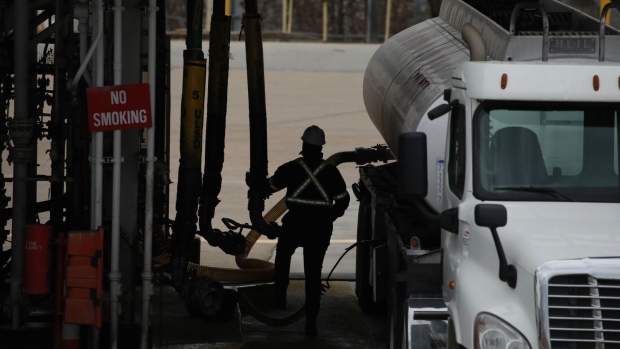May 8, 2024
Biden Raises Oil Price US Is Willing to Pay to Refill Reserves
, Bloomberg News

(Bloomberg) -- The Biden administration raised the price it’s willing to pay to refill the country’s emergency oil reserves, which have dwindled near the lowest in four decades.
The Energy Department said in a filing that it will pay as much as $79.99 a barrel for oil, the first time the administration has set an explicit price ceiling. That’s higher than the previous informal cap of $79 and close to market prices. The DOE has also changed the pricing formula, allowing for potential bidders to better hedge positions.
“Good to see more market-based thinking finally,” Ilia Bouchouev, a former trader and current managing partner at Pentathlon Investments who teaches at New York University, said in a post on the X platform.
Traders had complained about the rules governing the sale of oil to the government, which they said hadn’t kept up with evolving ways of managing risk in a time of volatility and geopolitical uncertainties. Under the new rules, the price is established on the day sellers are notified they’d won the sale, which allows traders to promptly put hedging mechanisms in motion. Previously, the price was set based on the three trading days starting with the notice date, a period that could extend for a total of five days if the award was announced on a Friday.
The government has used its oil vault to supply the market during times of disruption caused by wars and hurricanes. Two years ago, it released an unprecedented 180 million barrels following the Russian invasion of Ukraine and after gasoline prices soared, adding to inflation concerns. It’s a tool that’s closely monitored by oil watchers as an opening of the taps can send crude prices lower.
The DOE is seeking to buy 3.3 million barrels of sour oil. Bids are due on May 14 and valid until May 23.
©2024 Bloomberg L.P.






